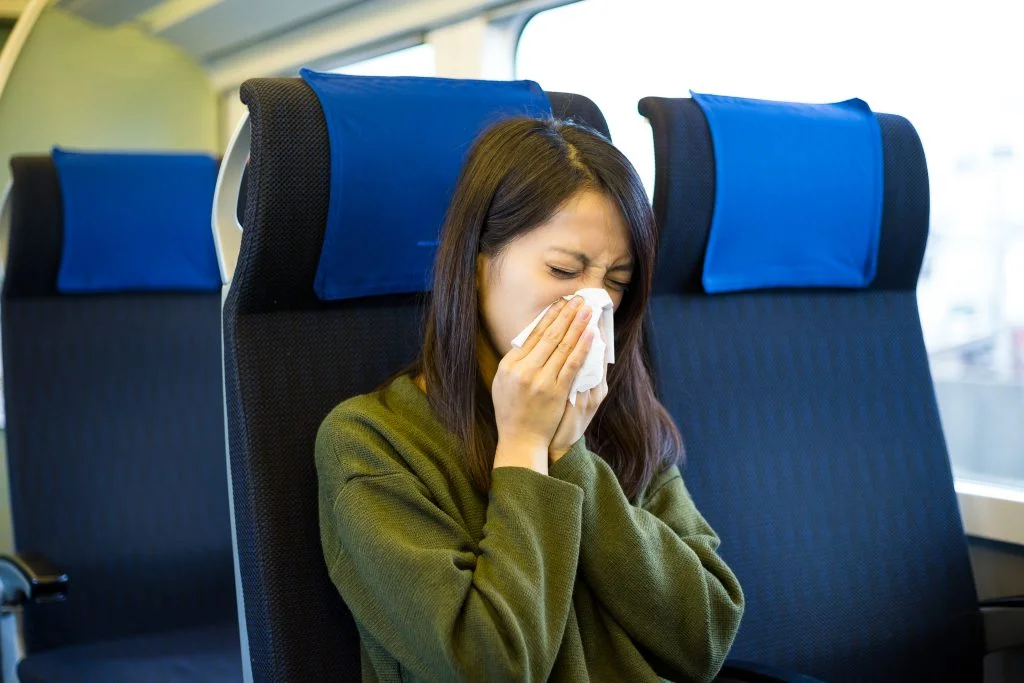
Protecting Yourself from Influenza: How Health and Travel Insurance Can Help You
30 May 2025
Understanding influenza: risks, complications, and prevention

Influenza is caused by the influenza virus and spreads easily through droplets when an infected person coughs, sneezes, or talks. It can also spread by touching contaminated surfaces and then touching the mouth, nose, or eyes. Symptoms of the flu include fever, cough, sore throat, body aches, and fatigue. While most people recover within a week, certain individuals may develop serious complications of the flu, such as pneumonia, bronchitis, and worsening of chronic conditions, which may require hospitalisation.
Vaccination is the most effective way to prevent influenza. However, as the virus mutates frequently, the vaccine is updated annually to protect against the most common circulating strains. While breakthrough infections can still occur, vaccinated individuals typically experience milder symptoms and lower risks of severe complications.
Despite preventive measures, influenza can still lead to unexpected medical expenses. Health and travel insurance in Singapore can provide peace of mind by covering medical costs, hospitalisation, and emergency care, especially when travelling to regions with limited healthcare access.
How health and travel insurance can help with influenza

Health insurance
Most health insurance plans in Singapore cover hospitalisation for severe influenza cases, but outpatient GP visits are typically not included. However, the corporate health insurance policies provided by your employer can help cover outpatient costs, such as GP consultations and diagnostic tests.
For more serious cases that require hospitalisation, your MediShield Life and Integrated Shield Plans (IPs) will help offset inpatient medical costs, reducing out-of-pocket expenses. This ensures all Singaporeans and residents have access to quality healthcare in Singapore’s private and public hospitals.
Travel insurance
When travelling, having travel insurance is essential, not just for compensation related to flight disruptions and lost luggage but also for medical emergencies. If you fall ill with influenza abroad, travel insurance can cover medical expenses, hospitalisation, and even medical evacuation if necessary.
Many family-friendly policies cover children and adults, ensuring your whole family is protected when travelling. Additionally, some policies offer coverage for trip cancellations or interruptions due to influenza, reimbursing non-refundable expenses if you or a family member falls ill before or during your trip.
When to seek medical care for influenza

Most cases of influenza can be managed at home with rest, hydration, and over-the-counter medication for symptom relief. However, medical attention should be sought if symptoms become severe. Signs that require immediate medical care include difficulty breathing, persistent high fever, chest pains, confusion, or worsening of pre-existing conditions.
If you or your loved ones have any of the above symptoms, seek medical attention immediately. In Singapore, you can visit the Urgent Care Centre (UCC) at private hospitals, the Paediatric Urgent Care Centre (PUCC) at Parkway East Hospital, or the Accident & Emergency (A&E) department at restructured public hospitals.
Knowing where to go in a medical emergency can make all the difference, which is why it’s essential to understand your health insurance coverage. This ensures that if you ever need to use your health insurance in Singapore, you won’t be caught off guard or scrambling to contact your agent for details. Take this opportunity to use our Coverage Checker to find out exactly what your health insurance covers so you can make informed decisions when it matters most.
Practical tips for protecting yourself from influenza

- Get vaccinated twice a year for both the northern and southern hemisphere flu strains, as the influenza virus evolves annually. Many local GP clinics, such as Parkway Shenton clinics, offer the vaccine.
- Practice good hygiene, including frequent handwashing, covering coughs and sneezes, and avoiding close contact with sick individuals.
- If travelling, check your destination’s influenza risk and ensure your travel insurance includes comprehensive medical coverage.
- Review your health insurance policy to understand what is covered for influenza treatment, both domestically and internationally. If unsure, use tools such as the Coverage Checker to verify your coverage.
Know your coverage before you need it
Influenza is a common but potentially serious illness that can disrupt daily life and travel plans. Vaccination and preventive measures are the first steps in protection, but having the right health and travel insurance ensures financial security in case of illness.
By understanding your insurance coverage and knowing when to seek medical care, you can safeguard both your health and financial well-being against influenza. Taking proactive steps today can provide peace of mind and ensure you are prepared for any unexpected health concerns.




